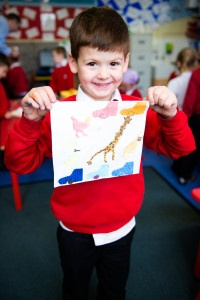
Philosophy lessons can boost children’s learning
BY: Alan Lynch
13 Jul 2015
A new study for the Education Endowment Fund (EEF) has found that taking part in regular philosophy lessons can boost children’s learning in reading and maths. Key Stage Two children who took part in the Philosophy for Children programme made approximately two additional months’ progress, particularly amongst disadvantaged pupils (classified as those eligible for free school meals).
 Children typically took part in discussions on philosophical themes, prompted by a stimulus such as a story, film, object or question. Themes included concepts such as ‘truth’, ‘fairness’ and ‘bullying’. Teachers and pupils reported that the sessions also impacted positively on students’ confidence to speak and ask questions in lessons, listening skills including patience when others are talking, self-esteem and general engagement in other classes.
Children typically took part in discussions on philosophical themes, prompted by a stimulus such as a story, film, object or question. Themes included concepts such as ‘truth’, ‘fairness’ and ‘bullying’. Teachers and pupils reported that the sessions also impacted positively on students’ confidence to speak and ask questions in lessons, listening skills including patience when others are talking, self-esteem and general engagement in other classes.
Teachers reported that the success of the programme depended on the philosophy sessions being embedded into regular curriculum time, in order to ensure the lessons did not crowded out or de-prioritised. More information about the study and the Philosophy for Children programme can be found on the Education Endowment Fund website.
Feeling inspired? Four arts-based philosophy activities to do with your class
- Listen to a piece of music as a group. How does it make you feel? What do you think of when you hear it? Why do you think it makes you feel this way?
- If you had to be a colour, which one would it be and why?
- Show an image/film of an unusual piece of art. Discuss – what makes this an artwork? Can we judge if it’s ‘good’ or ‘bad’?
- Share an image of an artwork such as a sculpture, and discuss all the words that come to mind when you see it. What questions would you ask the artwork?
Related posts
BY: Alan Lynch
BY: Guest Writer




Comments & Replies